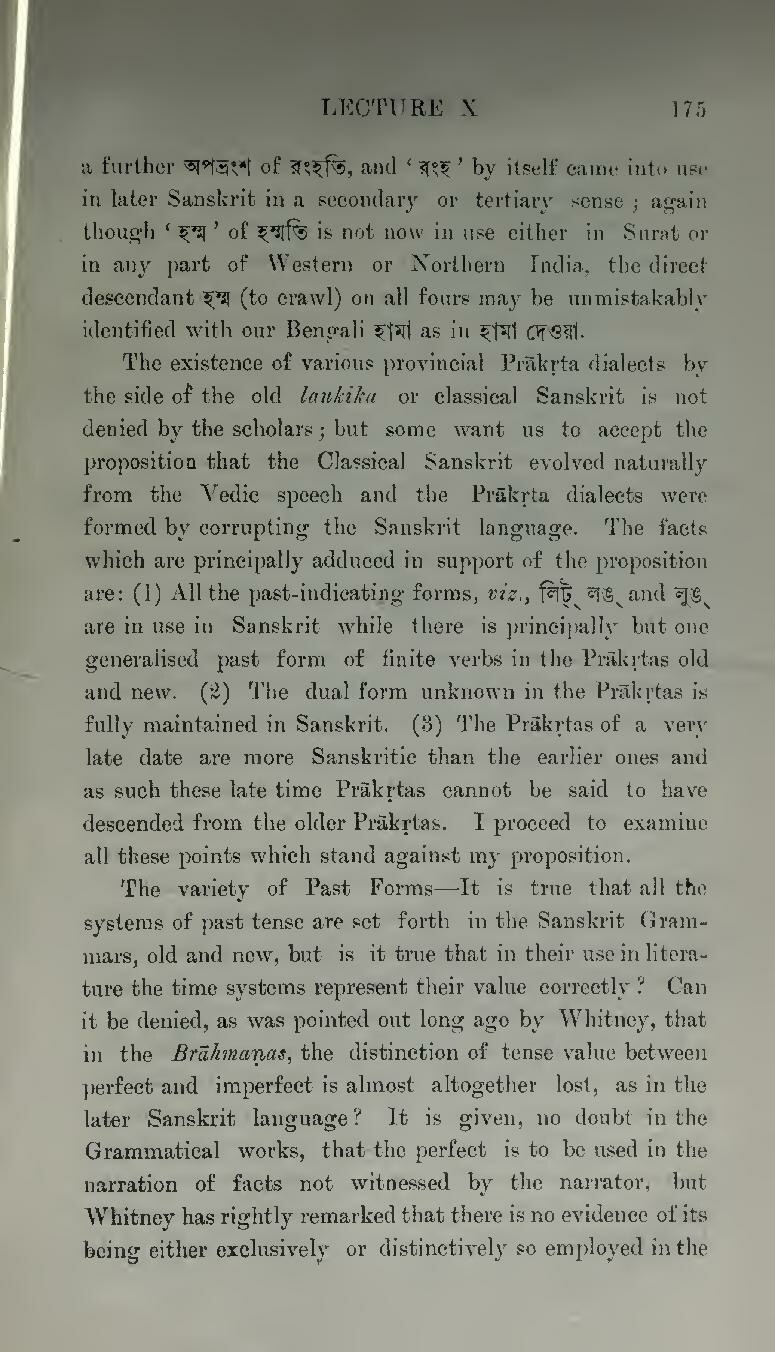a further অপভ্রংশ of রংহতি, and 'রংহ' by itself came into use in later Sanskrit in a secondary or tertiary sense; again though 'হম্ম' of হম্মতি is not now in use either in Surat or in any part of Western or Northern India, the direct descendant হম্ম (to crawl) on all fours may be unmistakably identified with our Bengali হামা as in হামা দেওয়া.
The existence of various provincial Prākṛta dialects by the side of the old laukika or classical Sanskrit is not denied by the scholars; but some want us to accept the proposition that the Classical Sanskrit evolved naturally from the Vedic speech and the Prākṛta dialects were formed by corrupting the Sanskrit language. The facts which are principally adduced in support of the proposition are: (1) All the past-indicating forms, viz., লিট্, লঙ্ and লুঙ্ are in use in Sanskrit while there is principally but one generalised past form of finite verbs in the Prākṛtas old and new. (2) The dual form unknown in the Prākṛtas is fully maintained in Sanskrit. (3) The Prākṛtas of a very late date are more Sanskritic than the earlier ones and as such these late time Prākṛtas cannot be said to have descended from the older Prākṛtas. I proceed to examine all these points which stand against my proposition.
The variety of Past Forms—It is true that all the systems of past tense are set forth in the Sanskrit Grammars, old and new, but is it true that in their use in literature the time systems represent their value correctly? Can it be denied, as was pointed out long ago by Whitney, that in the Brāhmaṇas, the distinction of tense value between perfect and imperfect is almost altogether lost, as in the later Sanskrit language? It is given, no doubt in the Grammatical works, that the perfect is to be used in the narration of facts not witnessed by the narrator, but Whitney has rightly remarked that there is no evidence of its being either exclusively or distinctively so employed in the
